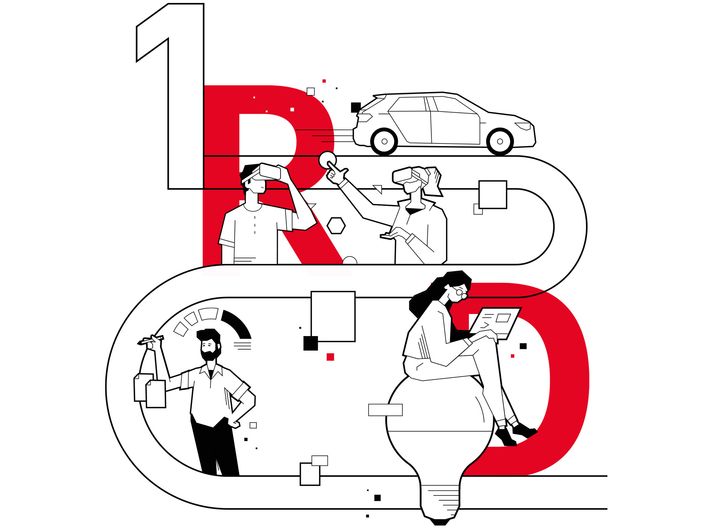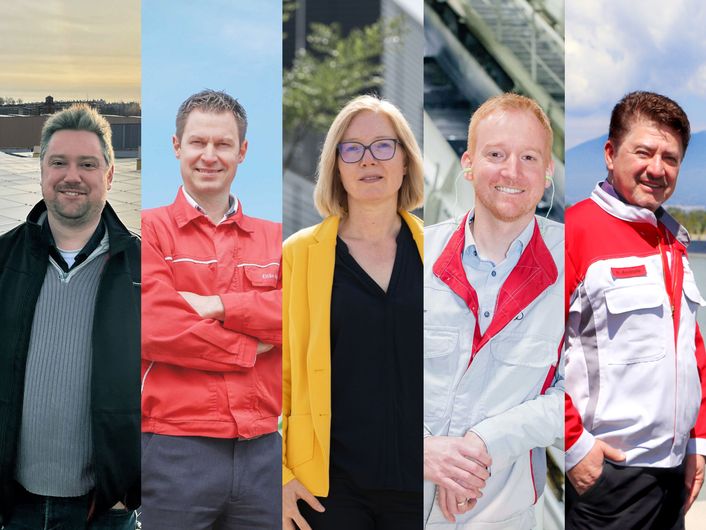Reducing CO₂ emissions at Audi dealerships
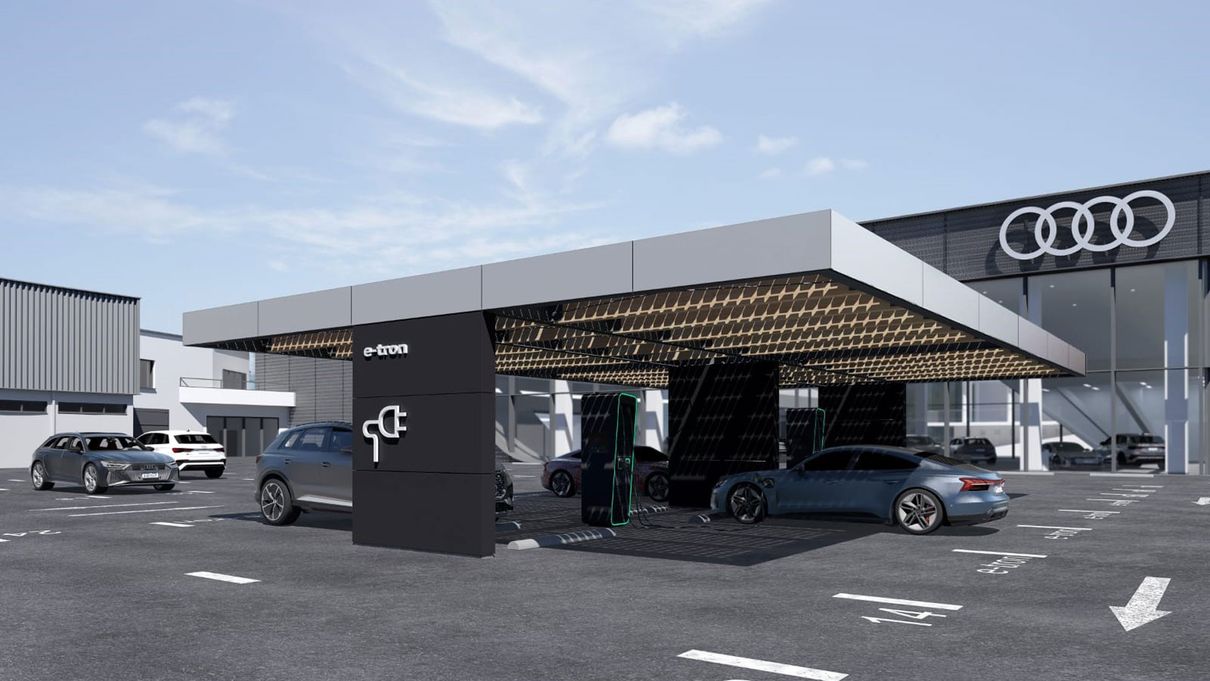
The Audi Group has set itself the goal of achieving net carbon neutrality1 company-wide by no later than 2050. If this is to be achieved, then it is vital that the dealer and service locations worldwide are brought on board. Electricity usage and heat generation are the key drivers of CO₂ emissions in the global dealer network. AUDI AG therefore supports its partner companies in the retail sector, for example, with projects such as the e-readiness check or the planning and implementation of photovoltaic (PV) carports.
The Audi Group is focusing on battery-electric mobility as one of the most important ways to advance decarbonization. By 2027, the brand with the Four Rings wants to offer an all-electric vehicle in its portfolio in all core segments. This will mean changes for dealership staff working in both service and sales. Of increasing importance for dealerships, in particular, are aspects such as the growth in electricity demand and the development of a suitable charging infrastructure. In 2023, Audi therefore launched its e-readiness check for dealerships. The service is offered for all Audi dealerships and involves a comprehensive data analysis conducted by an external agency to determine the current status of the charging infrastructure. For example, this looks at the number and duration of charges carried out each day at the available charging terminals. Based on this current status analysis, a desired target status is derived. This considers future requirements in relation to power supply hardware, charging hardware and charging capacity. Every participating dealership is then provided with an individual implementation plan that sets out how to achieve the desired target status. The findings from e-readiness checks that have already been carried out are summarized in a guideline and made available to all dealerships worldwide. In 2023 alone, the check was successfully carried out in 12 markets and in more than 600 dealerships in Europe. Further markets in Europe and in the Central America and Middle East regions are set to follow during the course of 2024.
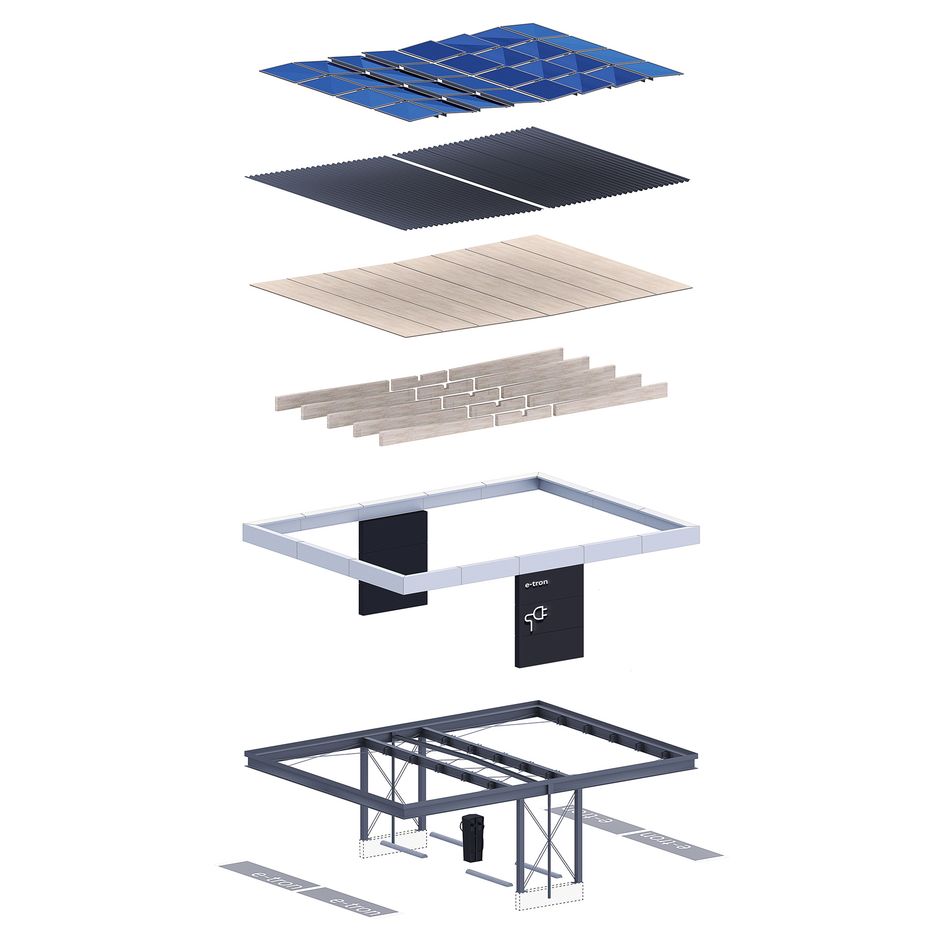
Not only is potential for growth examined as part of the e-readiness check, the expansion of the public charging infrastructure itself is being furthered, too. In 2022, for example, 111 HPC (High Power Charging) charging points were installed by dealerships in collaboration with the charging point providers in 12 European markets that had a poorly developed HPC infrastructure, with Audi providing some of the financial support. This increases the availability of charging points for all customers of fully electric vehicles.
Electricity generation can be supported in dealerships by means of a solar carport. It can be installed, for example, on car dealership premises, as part of a display area for used cars or as a charging station. Thanks to a roof area fitted with solar panels, the contemporary roof structure not only offers protection from rain and sun, it also helps to generate renewable energy for the dealership. Its distinctive design clearly conveys to visitors the progressiveness of the Audi brand.
Two solar carports in Canada and Spain have already been completed – with Audi providing planning and implementation support. A further two are currently under construction in France, with similar projects at the planning stage worldwide.

In addition, the Audi Group is involved in the “goTOzero RETAIL” multi-brand project within the Volkswagen Group. The aim of this project is to reduce the CO₂ emissions of the Volkswagen Group’s dealer network and to improve overall environmental performance in terms of water, heating, electricity and waste at the individual dealerships. Audi is playing a major role in this project. The carbon footprint of the dealerships is to be reduced – starting from the baseline value in 2020 – by at least 30 percent by 2030, by at least 55 percent by 2040 and by at least 75 percent by 2050.
A certification system entitled “goTOzero RETAIL certification” was developed within the Volkswagen Group as part of this project, which is based on existing rating systems and has been adapted to the special characteristics of car dealerships. It allows the dealerships to document their current environmental performance, optimize it over the long term and reduce their impact on the environment. The certification aims to create incentives for dealerships to continuously reduce the impact on the environment caused, for example, by CO₂ emissions, consumption of resources or soil sealing. Examples of this include the procurement of green electricity, which comes entirely from renewable sources, the generation of own renewable electricity or the intelligent control of heating and lighting.
Because no certification methodology has existed to date that comprehensively addresses the relevant characteristics of a car dealership, an independent approach was developed for “goTOzero RETAIL certification,” which is designed to account for the special environmental aspects of dealerships. The “goTOzero RETAIL“ certification process only examines environmental criteria that impact dealerships directly. There are 69 such criteria, each of which is based on one of the four voluntary commitments set out in the Volkswagen Group’s “regenerate+” sustainability strategy: climate action, conservation of resources, protection of ecosystems and compliance with environmental regulations. These criteria are evaluated locally at the dealership or service partner company by means of a neutral and independent audit. To date the certification is being carried out in 12 markets worldwide (as of 2023). Two dealerships have already achieved bronze level, four silver level and four have received the gold award. Further information can be found here.
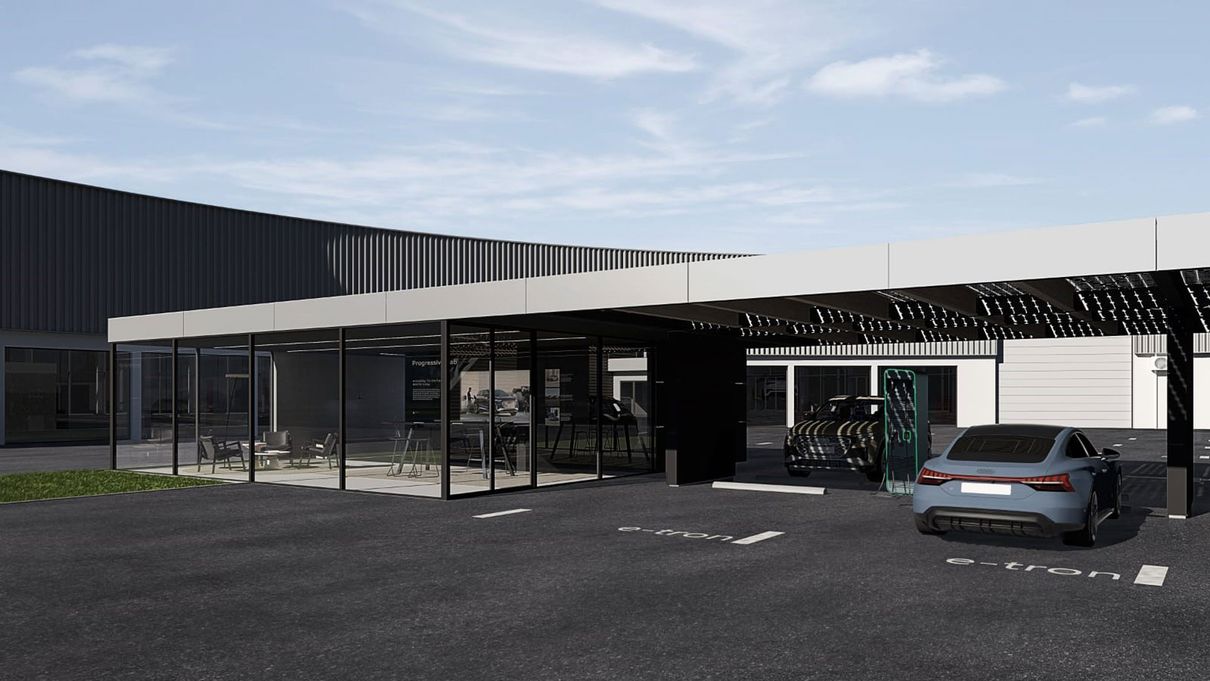
Dealerships also have recourse to a range of further decarbonization measures. To this end, the carbon footprint of the entire dealer and service network has been recorded annually since 2022. Manuals, training courses and marketing materials have been developed on this basis, which illustrate how and in which areas of the dealerships it is possible to reduce energy consumption, CO₂ emissions and also costs.
Moreover, a plan is currently being developed to provide energy and resource consultancy, which should be available to all markets during the course of 2024. This consultancy is provided locally by a certified energy consultant and includes further energy efficiency measures tailored individually to the dealership in question. The Volkswagen Group is furthermore striving to ensure the best possible use of renewable energy sources by dealerships, insofar as this is economically viable and technically feasible.
